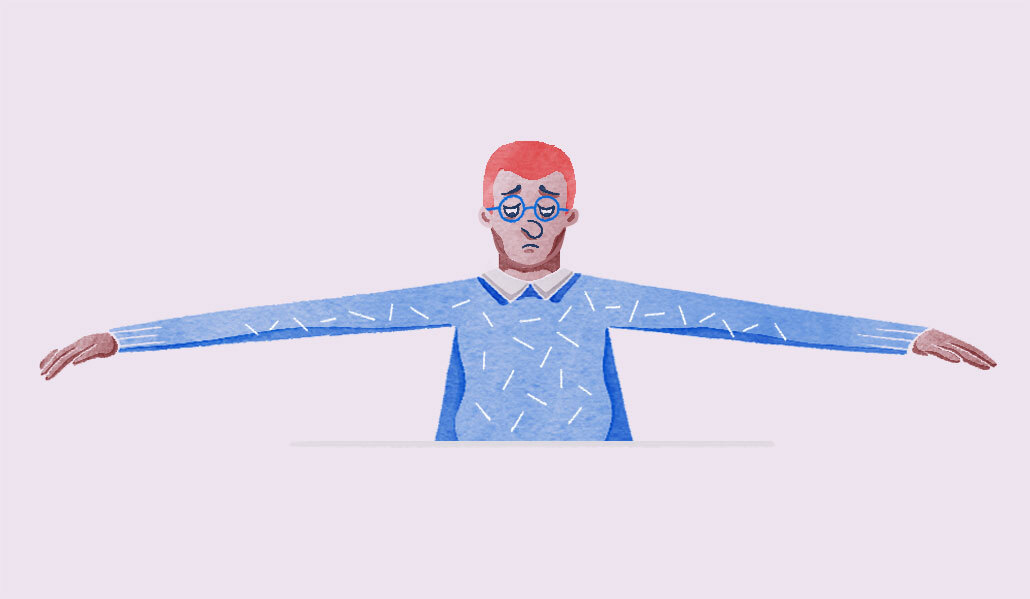WTF is sick guilt (and how is it part of a toxic workplace)?

Why is it, when we are sick, we feel duty bound to “show up” at work still?
This “sick guilt” has existed in some form since pre-Covid days when people would drag themselves to the office in order to prove to bosses just how sick they really were. If lucky, they’d be sent home to rest, albeit only after they’d infected half their office. And while the pandemic may have reduced people’s willingness to trudge into the office while sick, the remote and hybrid work movements have compounded this sense of guilt, because people can technically just work from their bed, or couch, while at home.
A whopping 89% of people are working while sick because they are experiencing pressure from managers, feelings of guilt and criticism from colleagues, according to BambooHR’s latest study.
And at a time when productivity and performance is under scrutiny, such ingrained presenteeism should be rooted out for good, experts say.
“Through the pandemic we thought there would be a greater focus on our own wellness, and the surprising part to me in this data is that that did not play out,” said Anita Grantham, head of HR at BambooHR.
We dive into how sick guilt is affecting workers and why it matters.
What is sick guilt?
It’s when a person feels remorse or shame that they can’t work, or perform at their best, when they’re sick. “It may consist of remorse, feelings of shame, condemnation, and even regret that one cannot execute the daily tasks,” said Roza Szafranek, founder and CEO of HR Hints, an HR boutique.
And it perpetuates the longstanding sense of virtual presenteeism. “As someone who owns a business and manages other people’s careers and businesses, I have a huge sense of responsibility to uphold, so ‘sick guilt’ is such a big thing that I totally suffer from,” said Corene Hippolyte-Newman, founder and director of PinkHippoLondonPR. “I don’t often take any time off. If I am sick, I will crunch down my workload and work from my bed.”
She said she’s not alone either. The fellow business owners she talks to do the same.
Founder of job board company Flexa, Molly Johnson-Jones, said she has often felt guilty for taking time off or working from home when unwell. She has lived with an autoimmune condition since the age of 18 years old, which causes symptoms like swollen joints and pain. On several occasions she was asked by employers to send pictures to prove that she was in the hospital.
“I rely on flexible work to avoid flare ups that leave me unable to get out of bed, and forced to take sick leave,” said Johnson-Jones. “But it’s a lose-lose situation when employers make you feel guilty for asking to work from home, and guilty for taking time off sick, something I’ve often experienced in previous roles.”
Grantham questions if much of this sick guilt comes from the current unstable economy and highly competitive market. “I think people are just really afraid so they’re really inclined to just do whatever it takes to work through it,” said Grantham. “That’s the dangerous part.”
What’s the long term impact when too many employees have sick guilt?
Johnson-Jones said that the extra hours she put in to prove her “commitment” only put her mental and physical health more at risk. “This will always be the risk for staff where company cultures celebrate presenteeism over employees’ well-being,” she said. “It goes without saying that employees who need to take time off sick should feel able to do so.”
Sick guilt and presenteeism are bad for both the employee and employer. Szafranek says that if people are sick and don’t take the time to properly take care of themselves, the recovery time will extend, impacting the employees’ performance even more. Companies who are fully in-person also need to consider the physical impact it can have. If someone has sick guilt and they show up to work, they can infect others and make things worse.
“Whether it’s absenteeism or presenteeism, they are signs of some sort of toxicity within the working culture,” said Erika Brodnock, CEO and co-founder of health and well-being platform Kinhub. “Staff should really feel psychologically safe enough to be able to say that they don’t feel well or whatever it is. It’s a signal for organizations to act.”
Grantham added that when people have sick guilt, they ultimately deliver something subpar. She says she’d rather have someone be honest with her about what they can and can’t do.
How do you cure sick guilt?
One easy change that employers can make is ensure that leadership team members aren’t showing up at work sick and setting that expectation. Szafranek also recommends organizations communicate the expectations and react when people violate them.
“If we have an agreement in the company, that when we are sick, we stay at home and focus on recovering, then we send them home when they show up sick,” said Szafranek.
Grantham says she practices setting an example as often as she can, but still sees some folks fall victim to sick guilt.
“If a meeting isn’t really awesome, I’ll call the team members and ask them if they’re OK today,” said Grantham. “They’ll be like ‘I have a migraine, or I don’t feel well.’ And I’m like ‘What is keeping you from saying you’re sick? Is it me? Am I creating this?’ and they say no, they just feel like because they’re working remotely they can do it. My question back is: ‘is that the best thing for you?’ It takes real leadership demonstration. If the people at the top aren’t doing it, no one else is going to do it.”
It’s also helping people feel that if they aren’t there for the day, they know that they won’t fall far behind and that they can rely on other team members to help out. The BambooHR report found that 45% of workers say the first thing they think when they get sick is how they can’t prioritize taking a sick day, but if employers help people understand that the job can wait, or it can be picked up by someone else, it can go a long way.
At the root of it all is psychological safety and ensuring that there is a workplace culture that allows people to feel comfortable with sharing what they’re dealing with and taking the time away to recover. According to the BambooHR report, two in five workers feel insecure about taking sick time because others may assume they’re faking it. If an organization has a strong level of trust, that assumption will lessen.
Brodnock says it’s about managers connecting with staff and ensuring they feel comfortable being honest if they are sick and needing to take the day off.
“It’s equipping managers with the tools and skills they need to be able to ask the right questions of their team members and enable people to feel safe enough and valued enough to be able to speak about the things that are going on,” said Brodnock. “That action really does need to come from the business and it needs to form the very fabric of the culture of the organization to show they are centering the health and well-being of their staff and that they empower team managers to lead with empathy.”

